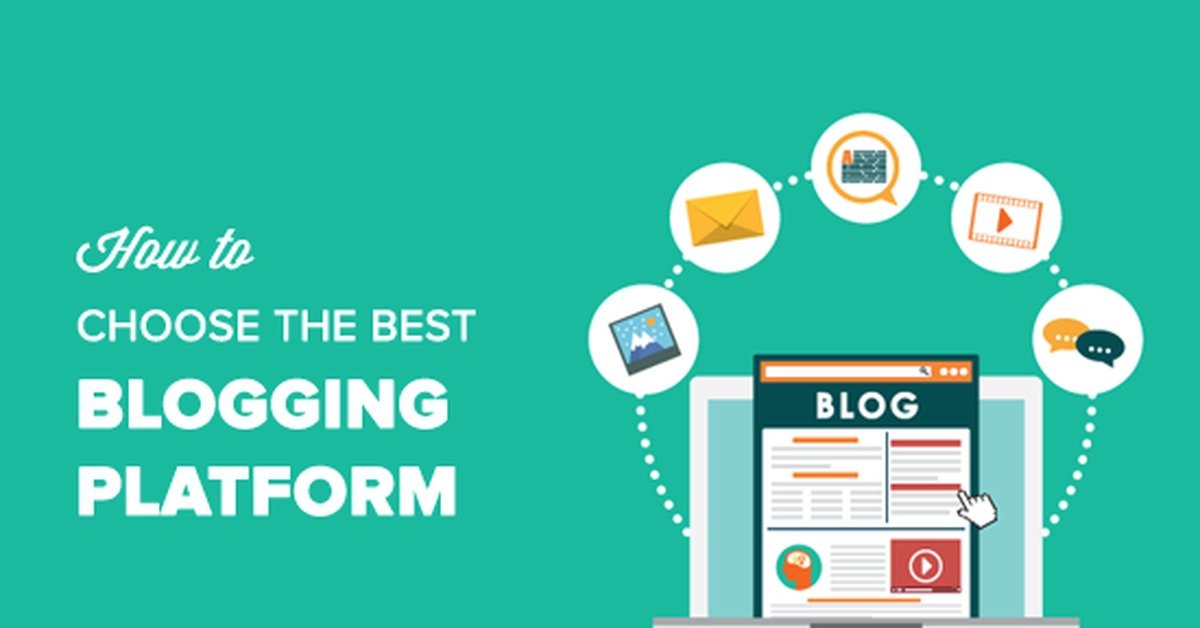In today’s digital age, blogging has become a powerful tool for individuals and businesses alike to share ideas, build an audience, and even generate income. Whether you’re a seasoned writer or a beginner looking to start your online journey, choosing the right blogging platform is crucial. With so many options available, it can be overwhelming to decide which one suits your needs best. In this article, we’ll explore some of the best platforms for blogging, highlighting their features, pros, and cons to help you make an informed decision.
WordPress.org
WordPress.org is often considered the gold standard for blogging platforms. It’s a self-hosted solution, meaning you’ll need to purchase a domain name and hosting, but it offers unparalleled flexibility and control.
Key Features:
- Thousands of free and premium themes for customization.
- Over 60,000 plugins to extend functionality (SEO, analytics, e-commerce, etc.).
- Full ownership of your content and website.
- Ideal for both beginners and advanced users.
Pros:
- Highly customizable and scalable.
- SEO-friendly with plugins like Yoast SEO.
- Large community support and extensive documentation.
Cons:
- Requires some technical knowledge for setup and maintenance.
- Additional costs for hosting, themes, and plugins.
Best For: Bloggers who want complete control over their website and are willing to invest time in learning the platform.
WordPress.com
WordPress.com is the hosted version of WordPress.org. It’s simpler to use but comes with fewer customization options unless you upgrade to a paid plan.
Key Features:
- Free plan available with basic features.
- Built-in hosting and security.
- Easy to set up and use.
Pros:
- Beginner-friendly with no technical setup required.
- Free plan for those on a tight budget.
- Reliable hosting and maintenance handled by WordPress.
Cons:
- Limited customization on free plans.
- Ads displayed on free and lower-tier plans.
- You don’t fully own your content on free plans.
Best For: Beginners or casual bloggers who want a simple, hassle-free platform.
Wix
Wix is a popular website builder that also serves as a great blogging platform. It’s known for its drag-and-drop interface, making it easy for anyone to create a visually appealing blog.
Key Features:
- Intuitive drag-and-drop editor.
- Hundreds of templates designed for blogs.
- Built-in SEO tools and analytics.
Pros:
- Extremely user-friendly, even for non-tech-savvy users.
- All-in-one platform with hosting included.
- Great for small businesses and personal blogs.
Cons:
- Limited flexibility compared to WordPress.
- Free plan includes Wix branding.
- Switching templates after publishing is difficult.
Best For: Beginners and small business owners who prioritize ease of use over advanced customization.
Blogger
Blogger, owned by Google, is a free blogging platform that’s been around for years. It’s a straightforward option for those who want to start blogging without any upfront costs.
Key Features:
- Free to use with Google integration.
- Simple and easy-to-use interface.
- Reliable hosting by Google.
Pros:
- Completely free with no hidden costs.
- Ideal for hobby bloggers.
- Seamless integration with Google services like AdSense.
Cons:
- Limited design and customization options.
- Outdated interface and features.
- Google can shut down your blog if it violates their policies.
Best For: Casual bloggers or those looking for a no-frills, free platform.
Medium
Medium is a unique platform that focuses on content rather than design. It’s a great choice for writers who want to reach a built-in audience without worrying about website management.
Key Features:
- Built-in audience of millions of readers.
- Minimalist design focused on content.
- No setup or maintenance required.
Pros:
- Easy to use and start publishing immediately.
- Great exposure for your content.
- No need to worry about hosting or design.
Cons:
- Limited monetization options.
- You don’t own the platform, so changes in policies can affect you.
- Few customization options.
Best For: Writers who want to focus solely on content and reach a wider audience.
Squarespace
Squarespace is a premium website builder known for its stunning, professionally designed templates. It’s a great option for bloggers who want a visually appealing site without much technical hassle.
Key Features:
- Beautiful, responsive templates.
- All-in-one platform with hosting included.
- Built-in SEO and analytics tools.
Pros:
- High-quality designs that look professional.
- Easy to use with a drag-and-drop editor.
- Great for creatives and visual-heavy blogs.
Cons:
- More expensive than other platforms.
- Limited third-party integrations.
- Not as flexible as WordPress.
Best For: Creatives, photographers, and bloggers who prioritize design and aesthetics.
Ghost
Ghost is a modern, open-source platform designed specifically for bloggers and publishers. It’s known for its simplicity and focus on content creation.
Key Features:
- Clean, distraction-free writing experience.
- Built-in SEO and membership features.
- Self-hosted or hosted options available.
Pros:
- Fast and lightweight platform.
- Great for monetization with membership options.
- Open-source and highly customizable.
Cons:
- Requires technical knowledge for self-hosted setup.
- Fewer themes and plugins compared to WordPress.
Best For: Professional bloggers and publishers looking for a minimalist, content-focused platform.
Conclusion
Choosing the best blogging platform depends on your goals, technical skills, and budget. If you’re looking for flexibility and control, WordPress.org is the way to go. For beginners, Wix or WordPress.com might be more suitable. If you want to focus solely on writing and reach a built-in audience, Medium is an excellent choice. Ultimately, the best platform is the one that aligns with your needs and helps you achieve your blogging goals.
No matter which platform you choose, the key to successful blogging lies in consistently creating valuable content and engaging with your audience. Happy blogging!
